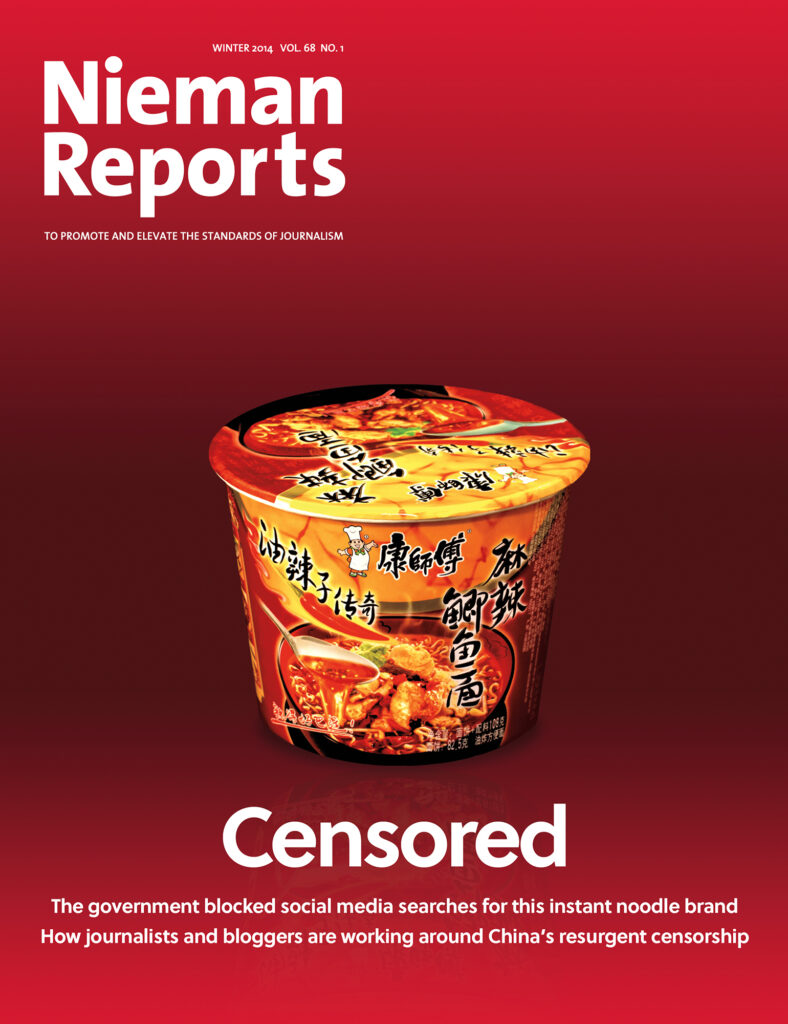
Technology development has been reshaping the media industry worldwide. In developed countries like the United States, traditional media companies felt the shock brought on by new technology several years ago. The global financial crisis made their survival even more difficult, but it also forced traditional media in those countries to adapt to—even embrace—change.
The situation in China is different. A couple of years ago, while traditional media outlets in developed countries were suffering through their transitions, many in China’s newspaper industry remained quite optimistic about the business outlook, believing that traditional media would remain dominant in the public sphere and continue to grow for at least the next five to six years.
However, changes have come much faster than expected. In the face of the rapid growth of Internet access, the market for traditional media has quickly eroded. Most of China’s media outlets are now struggling both internally, from inefficient management, and externally, from regulatory controls. In recent years, commercial interests have also affected the industry tremendously; weak self-discipline has facilitated media corruption.
This corruption is seen in the unforgivable practice of “rent-seeking”—taking bribes to fabricate stories. The problem is, in China’s peculiar political and media environment, where some media companies are government-linked, excessive interference and an absence of supervision coexist, making it easier for people to succumb to temptation, be it commercial or political. Thus, some media firms smear companies that refuse to place ads with them, while others are happy to sell themselves as public relations tools. Such practices are no secret within the industry; some even brag about them.
China’s media industry is not given adequate room for independent thinking, and there is no true competition to ensure that bad seeds are weeded out. To thrive, journalists need not only to exercise self-discipline; they need the rule of law and adequate protection. There is no freedom of speech without freedom of the press, and no social justice without the rule of law. Both play a key role in a society in transition.
Some of our peers are exploring paths for transition. It is too early to say which approach is best, but some principles should be shared by all media companies seeking new growth momentum.
A key criterion to measure the success of media in transition is whether it can sustain commercial growth while benefiting society. Compared to other enterprises, which make commercial interests the top consideration, media organizations should care more about their responsibility to social and public interests.
Traditional media should realize the challenges ahead. Companies should be prepared to face declining demand for print publications, sales and distribution, and adjust their personnel structure accordingly. The transition of mass media into the digital age will lead to significant changes in advertising. Ads in newspapers and magazines will see a dramatic decline, but at the same time the rise of Internet-based news portals will provide more diverse platforms and formats for advertising.
Like many of our peers, Caixin Media has been exploring the Internet arena. Over the past four years, we have seen our Internet business grow stronger and account for a larger portion of the company’s total revenue. Although it is still smaller than that from Caixin’s print publications, its growth rate has outperformed our traditional businesses. We are hoping to see Internet business become the major revenue source in the future. To achieve this goal, we must take innovative steps to develop new product formats to meet the needs of readers.
However, no matter how the media changes, professional journalism will always be the most important pursuit of reporters and editors. But systemic innovation in media companies will be needed to support development. In other words, media outlets should be run as modern companies.
China’s traditional media companies are more like government entities than corporations. Bureaucracy usually interferes with editorial decision-making. Therefore, establishing a modern business structure and enhancing corporate governance will be key issues for media leaders to tackle. They will also help determine the success of the media’s transition. But it is not necessary for all media outlets to transform into corporations. Some still will be controlled by the Communist Party and the government to act as propaganda agencies. Those organizations have access to government subsidies and should explore operating as nonprofit organizations. But the rest of the industry needs to adapt to the changing environment to survive.
Like elsewhere, the media environment in China is rapidly changing. But Chinese journalists also have to deal with the pressure that comes from operating in a political environment where government oversight and censorship are strict. Perhaps because of this, it is doubly important that Chinese journalists try to improve and protect the credibility of the media, for public trust is its most valuable asset and best defense.
One factor hindering the growth of the country’s media industry is the inadequate protection of intellectual property rights (IPR). There has long been a lack of IPR protection in China, which is rooted in lax law enforcement and lack of awareness from both industry participants and the public. The rapid growth of the Internet and online news portals has made IPR protection increasingly urgent. However, historical factors make the issue quite difficult to address. For instance, some media organizations have signed long-term contracts with news websites that allow the latter to use their content cheaply or even for free. Now, as competition intensifies, the failure to protect the right to original content has caused headaches for those media organizations.
Therefore, it is time for China’s media to form a consensus to strengthen IPR protection. Meanwhile, the government should make efforts to provide effective legal protection for original news content.
Of course, in-depth analysis and feature stories will remain valuable. The capacity to provide such content will help media outlets win readers. But doing such stories is usually time-consuming and costly. This is another reason IPR protection is important.
Clearly, the demand for professional news reporting is still rising in China, and high-quality content will remain the core competitiveness of media organizations. Better company structures and digital know-how will be required to meet these challenges.
Hu Shuli is editor in chief of Caixin Media Co. In 2007, she received the Louis M. Lyons Award for Conscience and Integrity in Journalism



